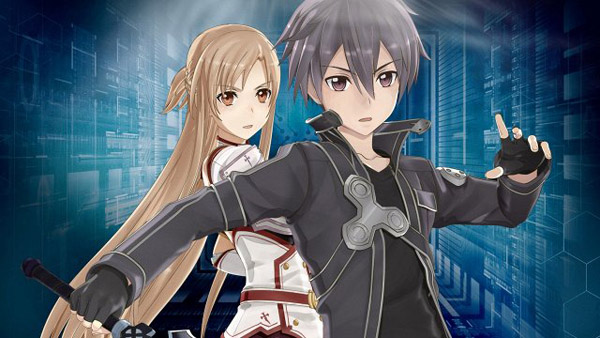Heroine Rewires Your Brain
So does the Internet.
The socially endorsed drug of the 21st century is… digital distraction.
We are addicted. This is hardly new news. In fact it’s a decade old. The dopamine loop created by the brain when it desires something, gets it and wants more is the same perilous 24/7 loop offered freely by the Net.
So, the internet IS a drug.
Dr. Glen Hansen of the Genetic Science Learning Center say this: “All addictive drugs affect brain pathways involving reward—that is, the dopamine system in the reward pathway. As the brain continues to adapt to the presence of the drug, regions outside of the reward pathway are also affected. Over time, brain regions responsible for judgment, decision-making, learning, and memory begin to physically change, making certain behaviors “hard-wired.” In some brain regions, connections between neurons are pruned back. In others, neurons form more connections.”
This is disturbing to me.
I dedicated a couple of years to writing a book (free) about this new world and how to survive it: Empire of Disruption: The Circuitous Path to Human Connection.
I then went about a three-month experiment wherein I unplugged and wrote about that. I felt calmer, less mentally and emotionally splintered. And more connected to the people, pets and nature I love.
The effects were dramatic.
Peoples reactions even more so.
There were some people who sought me out as an adventurous pilgrim engaged in a modern day digital fast of biblical proportions. Others were deeply irritated by having to pick up a landline to communicate.
Most smiled their acknowledgment and shrugged it off as an indulgence their busy career, mom-centric lifestyle or both would never permit.
As a long-term plan, in the modern world, it is radical.
It’s nearly the equivalent of my dear friend Baron’s decision to move his family off grid to Maine in the 1970’s.
Unplug from society. Live simply. Connect to the land and each other.
Not so dissimilar from many eat what you grow movements of today. There are highly organized agro-cultures springing up all over the country. Entire communities built around the town center… a huge plot of farmland.
It IS about the food but it is ALSO about a community lifestyle that is centered around something more vibrant, vital and alive.
Real, organic communication.
I was listening to the radio this morning on the way to the gym while trying to figure out if an hour of cartooning followed by an hour and a half of basketball followed by an hour of lacrosse on Monday nights (just for December) is too much since Leo still has newspaper early Tuesday mornings when my ears tuned into The Eagles lyrics…
“Life in the fast lane. Surely make you lose your mind.
Life in the fast lane. Everything, all the time.”
The digital insanity is not locally confined to a device. It reaches its endless fingers of opportunity out into your real life, wrapping them, sweetly, around the slender neck of your sanity.
E-mails and notification push out the proliferation of skill-driven activities, the fear-driven loss of missed opportunities. The overt message: competitive edge beats collaborative spirit, productivity trumps puttering, more is better than less.
To be clear, apart from the aforementioned Monday evening craziness, we DO believe in balance.
We do have downtime.
Family dinners. Meaningful conversation.
BUT, we are all a touch more impatient than we used to be. We’re each the slightest bit edgier. We break a little more quickly.
Our attention is disjointed and fragmented.
I notice this and try to self-correct. Try to quietly shift our families’ priorities behind the scenes. But it’s challenging. Opting out has a price too.
It’s tricky.
Often a balance of fluctuating extremes.
This weekend, there were too many messages about our cultural addiction to distraction to ignore. There was an op-ed piece in the New York Times and in the Wall Street Journal as well as a segment on the The CBS Sunday Morning Show.
All of them referenced how our addiction has deeply impacted our ability to digest content like books, long essays– anything exceeding a byte, blurb or bit.
We seem to be losing focus.
In 1964, Marshall McLuhan coined the phrase, “The medium is the message” regarding the technological impact of television.
He said that the form of a medium embeds itself in the message. That they are not independent.
The medium directly impacts how the message is perceived.
Nicholas Carr, in his 2011 book, The Shallows, What the Internet Is Doing to Our Brain, takes this argument further by suggesting not only have we altered the way we seek information but our brains are being hard-wired differently in order to process it.
New neural pathways are being replacing old ones.
Whether this is good or bad is up for debate.
Quantity over quality. Rapid sampling of many bits from many sources versus deep dives into in-depth discussions. Skimming versus reflection.
Quick top lines over contemplation and creative reflection.
I like the old-fashioned pathways, where you meander and explore– discover beauty and insight only available by lingering.
That being said, I have no idea how I would have written this piece if not for the Internet. How I’d keep up my discovery of new poets, search out simple but delicious recipes for fish bouillabaisse.
I’d be lost.
And yet, it leaves me revved, agitated, nervous, irritable, and disjointed in my thoughts. I am genuinely happier, kinder and more patient off of it.
I am more connected to what matters when I unplug.





